Did you know that the word savory has two meanings? The first meaning is a savory flavor as in “savory soy sauce” and the second meaning is an aromatic herb known as savory which is a member of the mint family.
There are two varieties of savory: summer savory and winter savory. Now, what is the main difference between the two?
Both herbs have marjoram thyme and mint notes, but winter savory has a more robust flavor than summer savory. In accordance with this, below you’ll find the best summer and winter savory substitutes suited for any dish.
To help you narrow down your choices, I’ve compared each substitute to summer and winter savory in terms of their similarities and differences. Enjoy!
Summer Savory Substitutes
Summer savory is both spicy and sweet and it goes well with almost any dish. You can add it to a frittata, make a savory omelet, or use it for marinating fish or chicken. If you run out of it, worry not. Here are the best summer savory substitutes:
1. Winter savory
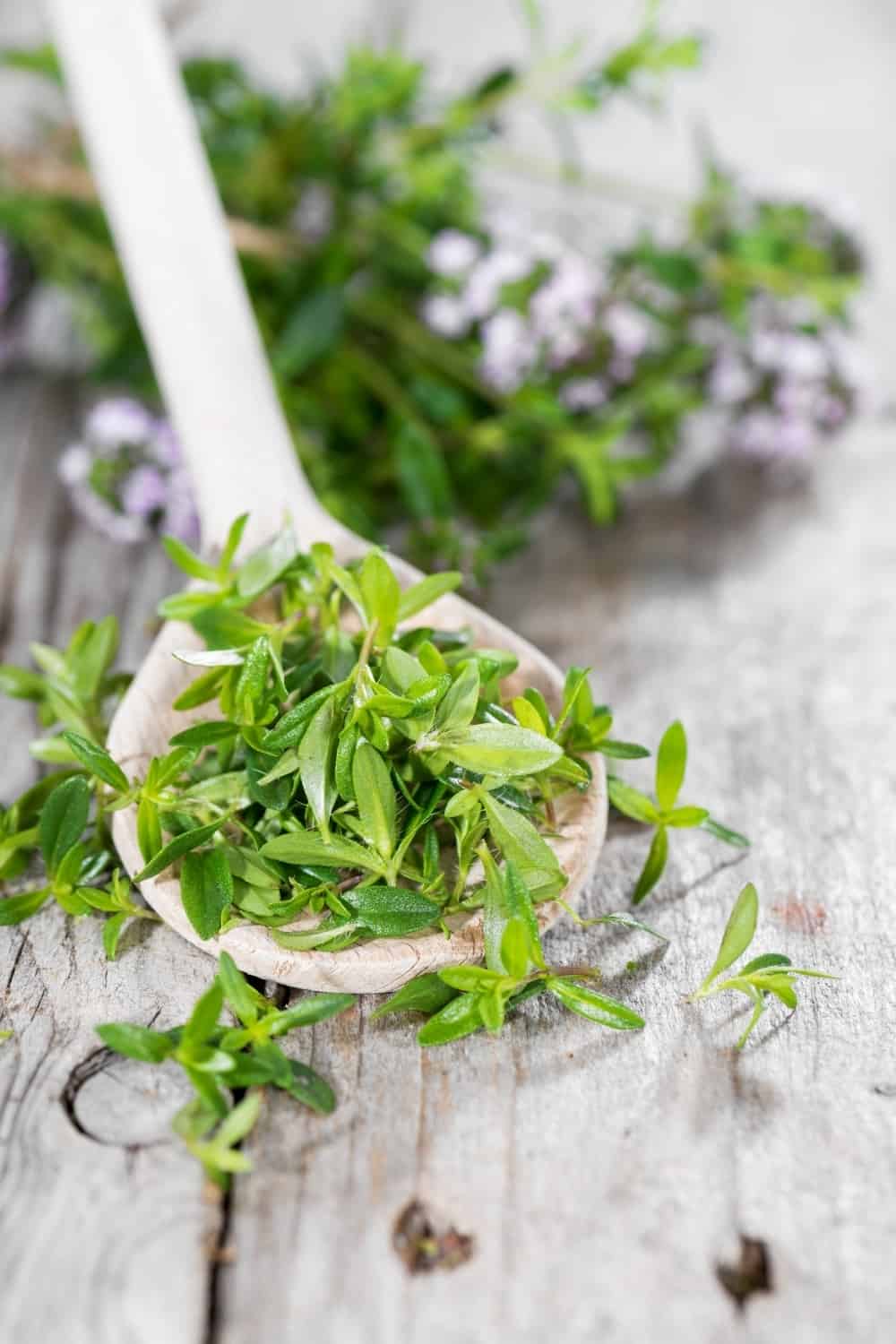
Winter savory is the best substitute for summer savory, but keep in mind that they have slightly different flavors.
Similarities
• Notes: Winter savory and summer savory share the notes of thyme, marjoram, and mint.
• Texture: Both winter and summer savory have a fine, fluffy texture.
• Availability: Both winter savory and summer savory can be found in grocery stores, supermarkets, and online shopping websites.
• Price: Both winter savory and summer savory cost around $8 per 1 oz.
Differences
• Taste: Winter savory has an earthy, strong, and bitter taste, while summer savory has a hot, peppery taste.
How to use winter savory in cooking
You can use winter savory with green beans, salads, and stuffings. You can also use this herb to marinate chicken (or frozen chicken), beef, or pork before grilling or roasting.
2. Marjoram
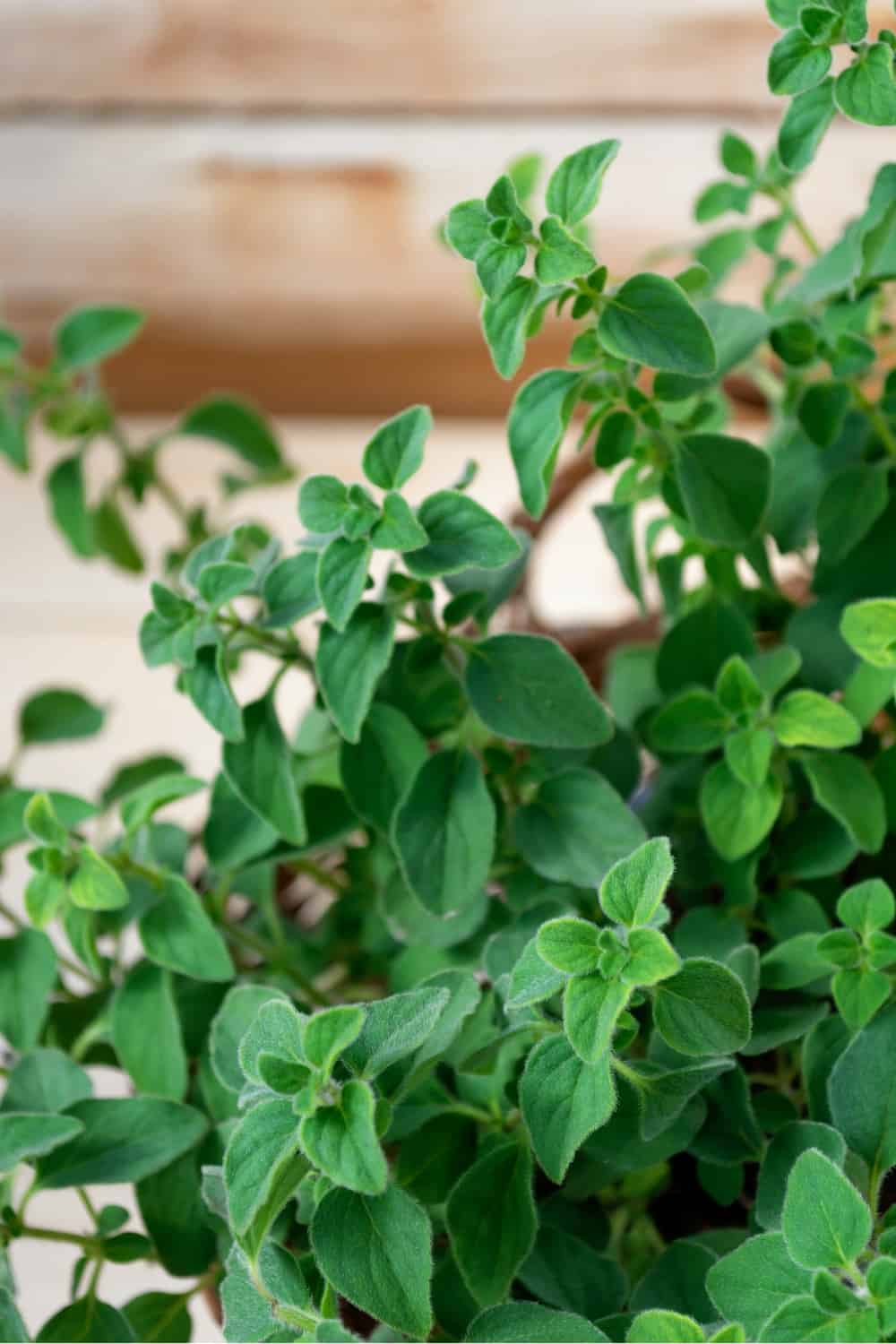
Marjoram is one of the oldest and most popular herbs in the world. It has multiple uses from cooking to medicinal purposes. Marjoram is one of the best substitutes for rosemary and summer savory.
Similarities
• Notes: Marjoram is one of the notes found in summer savory.
• Price: Marjoram and summer savory share the average price of $8 per 1 oz.
• Availability: Both marjoram and summer savory can be found in grocery stores, supermarkets, and online shopping websites.
Differences
• Taste: Marjoram has a sweet, delicate, and earthy taste, whereas summer savory has a hot, peppery taste.
• Texture: Marjoram has a fuzzy texture, while summer savory has a fine, fluffy texture.
How to use marjoram in cooking
Marjoram is popularly used to season red meats, as it pairs well with the flavor of lamb and beef. It can also be added to veggies, sausages, poultry, stuffings, and dishes with tomatoes.
3. Thyme

Thyme is a Mediterranean herb that has multiple uses: medicinal, dietary, and ornamental. Marjoram, thyme, and oregano belong to the mint, Lamiaceae family, just like lemon balm and mint.
Similarities
• Notes: Both thyme and summer savory have minty notes.
• Availability: Thyme and summer savory can be found in grocery stores, supermarkets, and online shopping websites.
Differences
• Taste: Thyme has an earthy, and sweet taste, whereas summer savory has a hot, peppery taste.
• Texture: Thyme has a leafy, fibrous texture, whereas summer savory has a fine, fluffy texture.
• Price: 1 oz of thyme costs around $5, while 1 oz of summer savory is around $8.
How to use thyme in cooking
Thyme is popularly used with tomatoes, cheese, lentils, and eggs. It can be also used to season poultry or for recipes that require stuffing.
4. Oregano
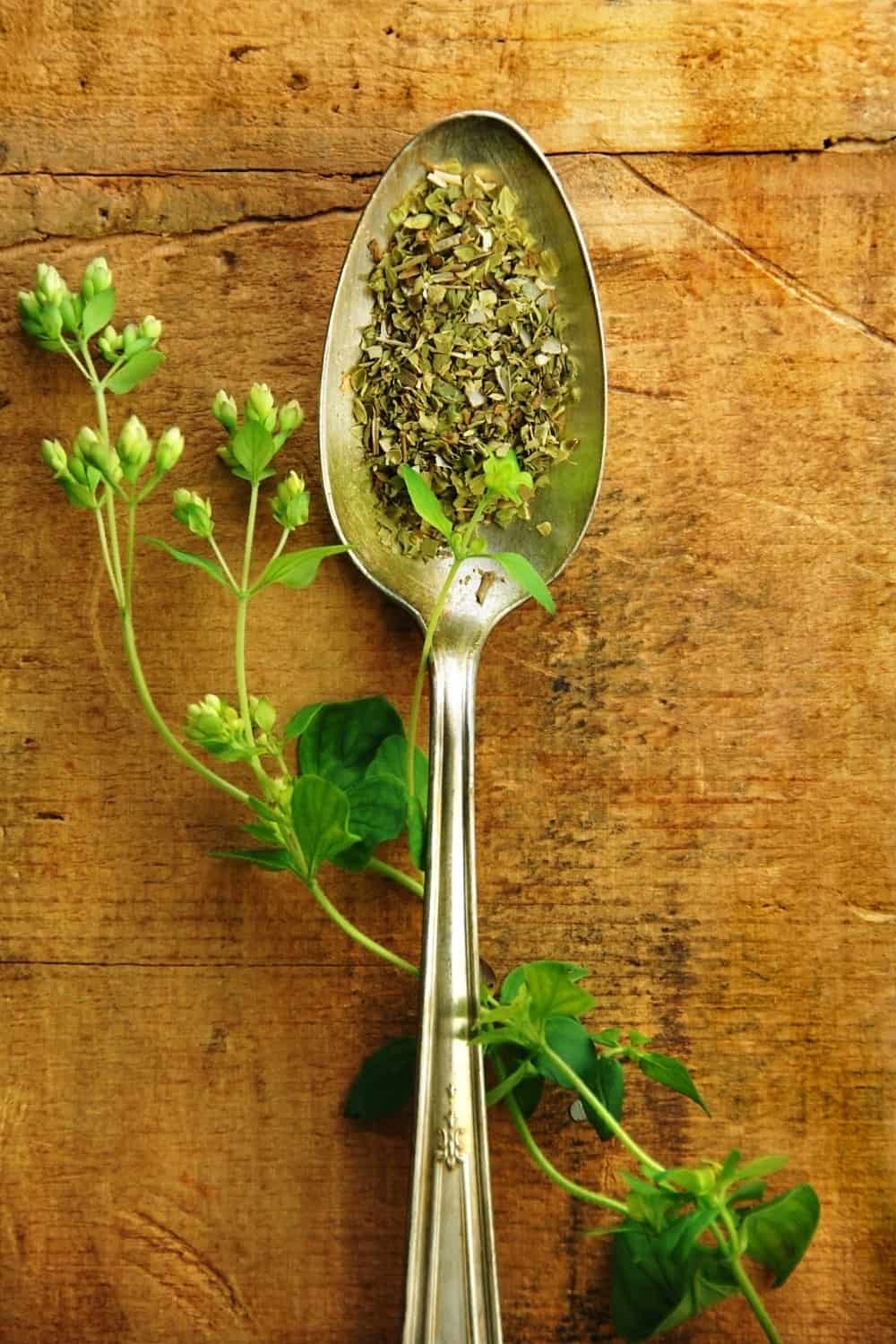
Apart from culinary uses, oregano can also be used for parasite infections, wound healing, and other conditions.
Similarities
• Taste: Oregano and summer savory share a peppery, minty taste.
• Availability: Both oregano and summer savory can be found in grocery stores, supermarkets, and online shopping websites.
• Price: Both oregano and summer savory cost around $8 per 1 oz.
Differences
• Texture: Oregano has a soft, fuzzy texture, while summer savory has a fine, fluffy texture.
How to use oregano in cooking
Oregano is most commonly used in pasta sauce and pizza. It can also be used with beans, chicken, seafood, or pesto.
5. Sage
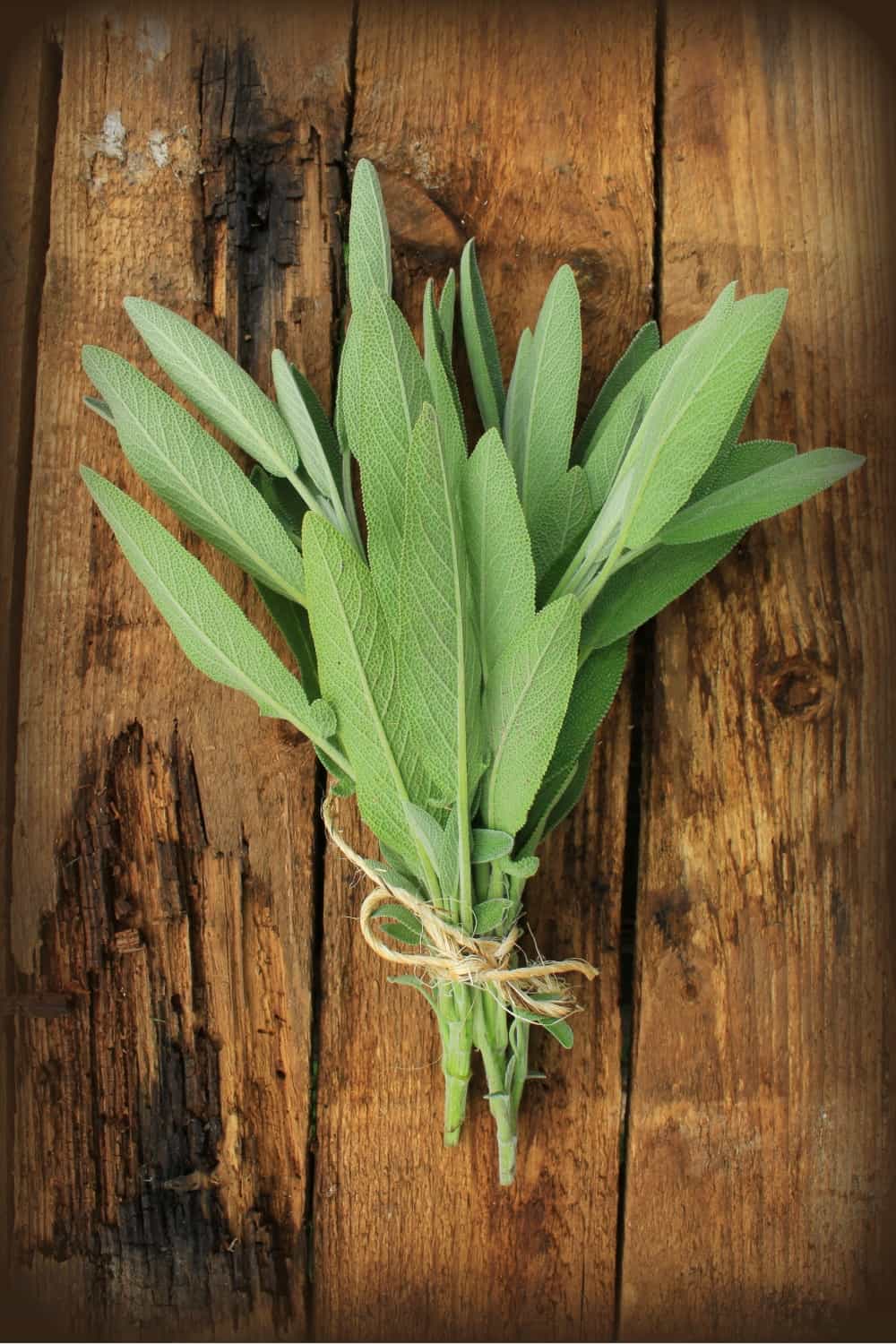
Sage has an intense herbal flavor that can spice up any dish.
Similarities
• Notes: Both sage and summer savory have minty notes.
• Availability: Sage and summer savory can be found in grocery stores, supermarkets, and online shopping websites.
Differences
• Taste: Sage has a strong, musky taste, whereas summer savory has a hot, peppery taste.
• Texture: Sage leaves have a soft and fuzzy texture, while summer savory has a fine, fluffy texture.
• Price: The average price of sage is $5 per 1 oz, while summer savory costs around $8 per 1 oz.
How to use sage in cooking
Sage is often used for seasoning sausages or poultry, and it also pairs well with sweet potatoes. It can also be used for stuffings and in soups.
6. Herbes de Provence
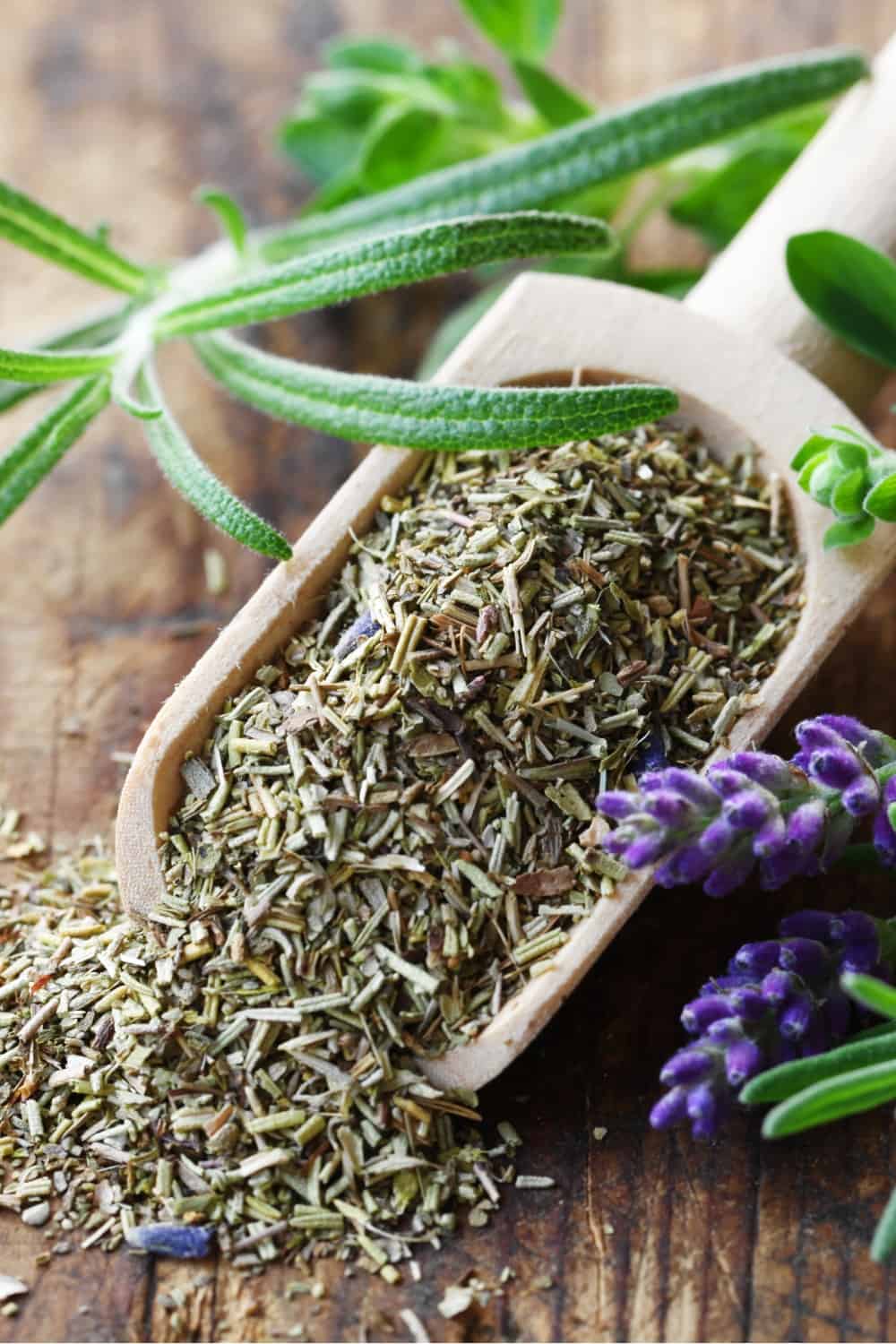
Herbes de Provence is an aromatic blend of dried Provençal herbs and spices that originated in the Provence region of Southern France. Apart from being a great substitute for summer savory, it is also a good substitute for Italian seasoning.
Similarities
• The traditional Herbes de Provence blend also contains summer savory.
• Availability: Both Herbes de Provence blend and summer savory can be found in grocery stores, supermarkets, and online shopping websites.
Differences
• Taste: Herbes de Provence blend has an earthy and slightly sweet taste, whereas summer savory has a hot, peppery taste.
• Texture: Herbes de Provence is a dry herb mixture, while summer savory has a fine, fluffy texture.
• Price: Herbes de Provence costs around $10 per 1 oz, while 1 oz of summer savory costs around $8.
How to use Herbes de Provence in cooking
Herbes de Provence blend is commonly used with stews, soups, rice, quinoa dishes, and in sauces, meat, seafood, and salad dressings. This blend also goes well with wrap fillings and veggies.
7. Rosemary
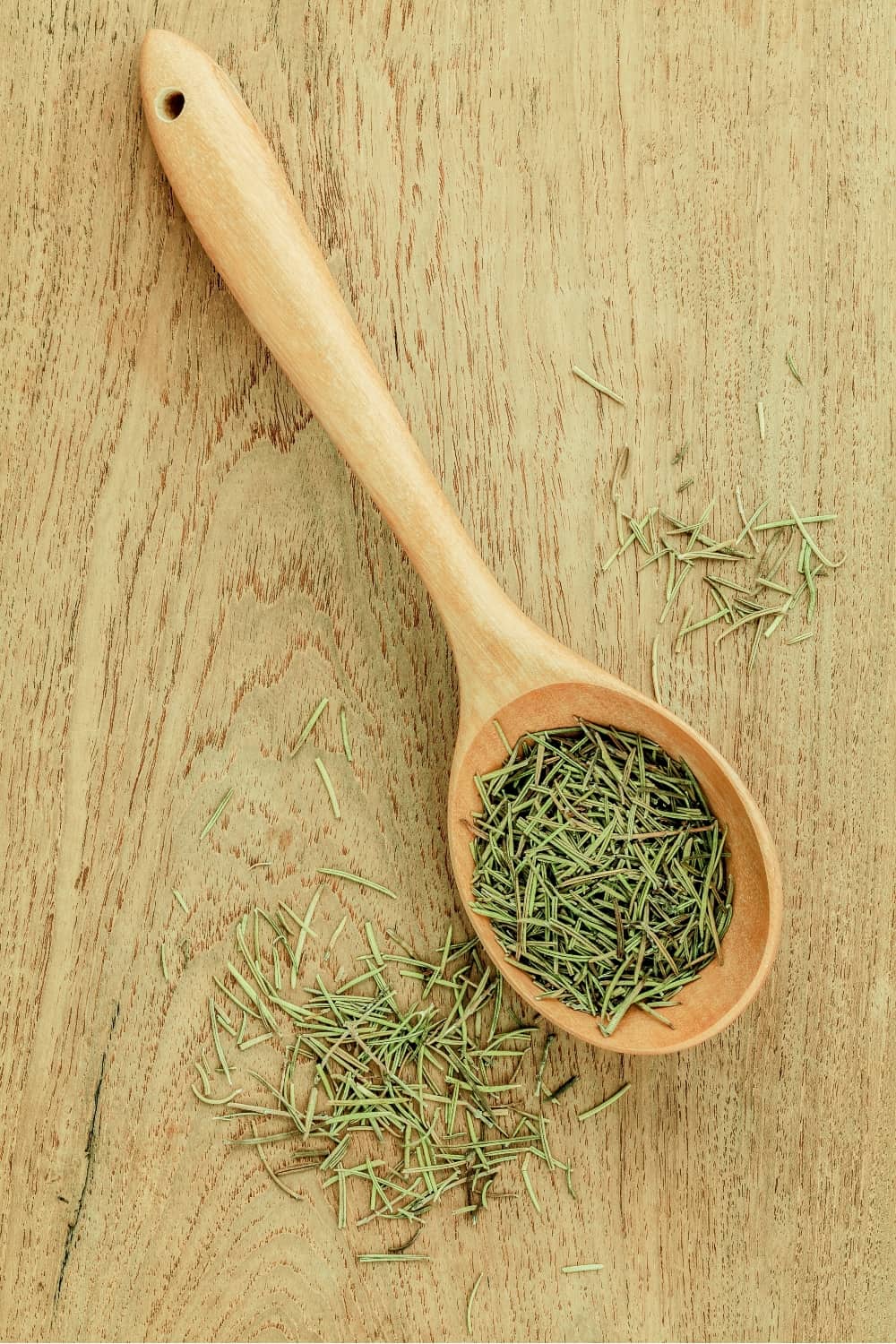
Leaves that resemble needles and a woody flavor are what make rosemary one of the most distinct herbs.
Similarities
• Availability: Rosemary and summer savory can be found in grocery stores, supermarkets, and online shopping websites.
Differences
• Taste: Rosemary has an aromatic, earthy, and slightly bitter taste, whereas summer savory has a hot, peppery taste with marjoram, thyme, and mint notes.
• Texture: Rosemary has a tough, needle-like texture, while summer savory has a fine, fluffy texture.
• Price: The average price of rosemary is $5 per 1 oz, while 1 oz of summer savory costs around $8.
How to use rosemary in cooking
Rosemary is used in soups, salads, stews, casseroles, poultry, lamb, fish, and pork. It also pairs well with mushrooms, potatoes, and spinach.
8. Basil
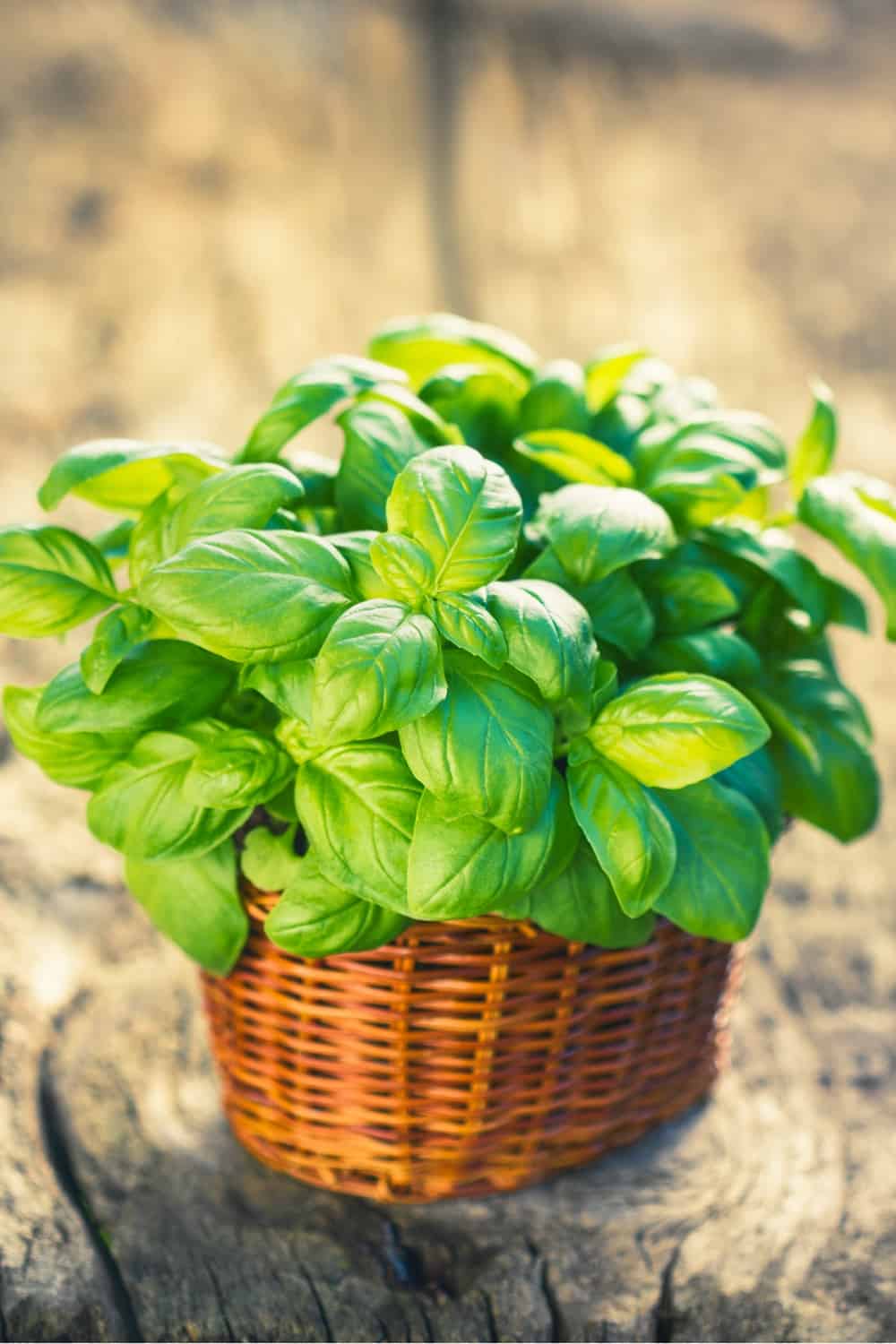
This leafy green herb has origins in Africa and Asia.
Similarities
• Availability: Both basil and summer savory can be found in grocery stores, supermarkets, and online shopping websites.
• Price: Both basil and summer savory cost around $8 per 1 oz.
Differences
• Taste: Basil has a pungent, sweet, and slightly spicy taste, while summer savory has a hot, peppery taste with marjoram, thyme, and mint notes.
• Texture: Basil leaves have a delicate, smooth texture, whereas summer savory has a fine, fluffy texture.
How to use basil in cooking
Basil leaves are popularly used with pasta, pizza, sauces, soups, and salads, and they can even be used as an ice cream topping.
Winter Savory Substitutes
Winter savory provides fresh leaves into early winter and it’s popularly used with salads, beans, and for stuffings. If you run out of it or can’t find it in stores, here are some great alternatives to choose from:
1. Summer savory
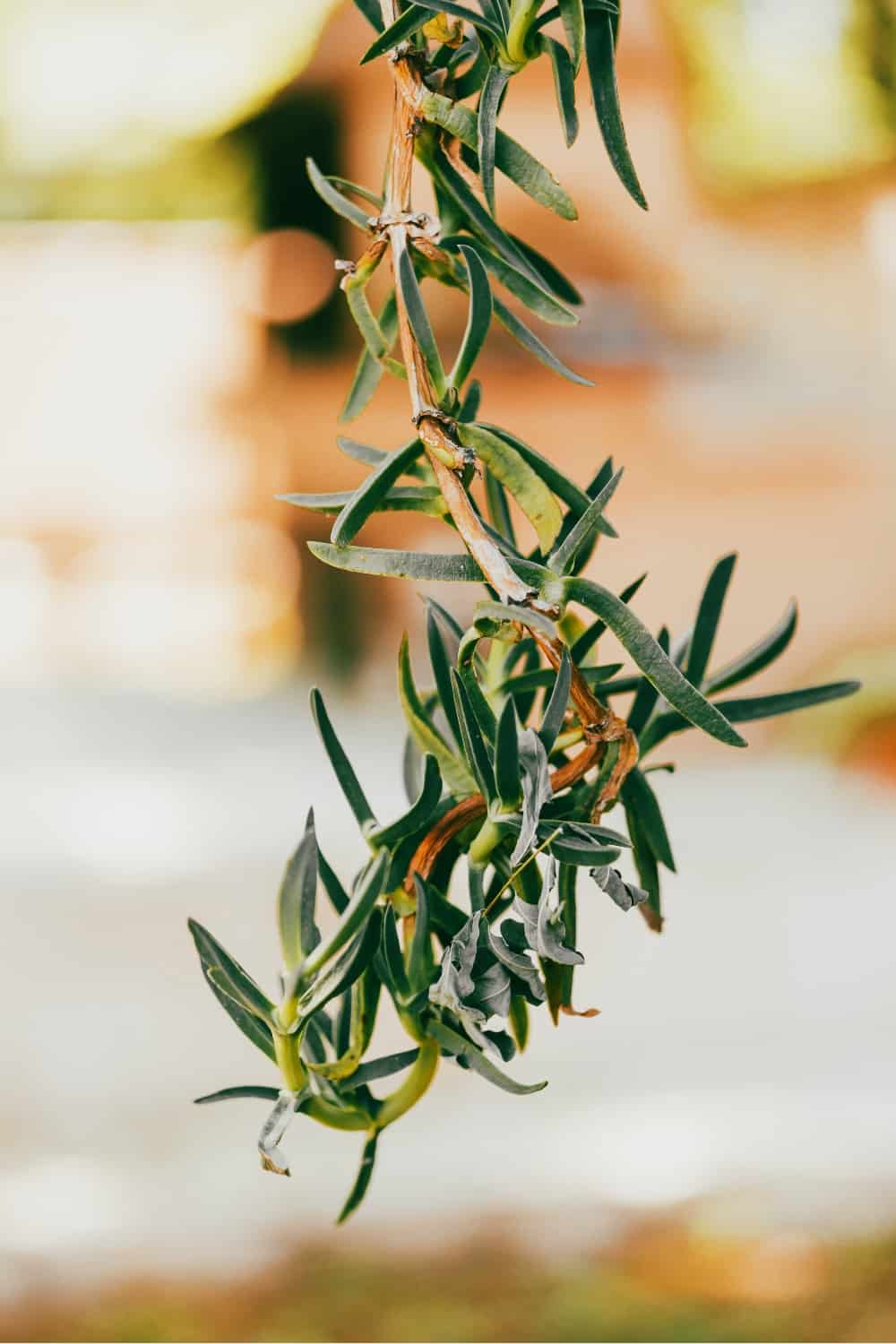
Summer savory is the best substitute for winter savory. However, their flavors slightly differ.
Similarities
• Texture: Both summer and winter savory have a fine, fluffy texture.
• Notes: Summer savory and winter savory share the notes of thyme, marjoram, and mint.
• Availability: Both summer savory and winter savory can be found in grocery stores, supermarkets, and online shopping websites.
• Price: Summer savory and winter savory cost around $8 per 1 oz.
Differences
• Taste: Summer savory has a hot, peppery taste, while winter savory has an earthy, strong, and bitter taste.
How to use summer savory in cooking
You can use summer savory with root vegetables, cabbage, broths, stews, and soups. You can also use its leaves for garnishes.
2. Epazote
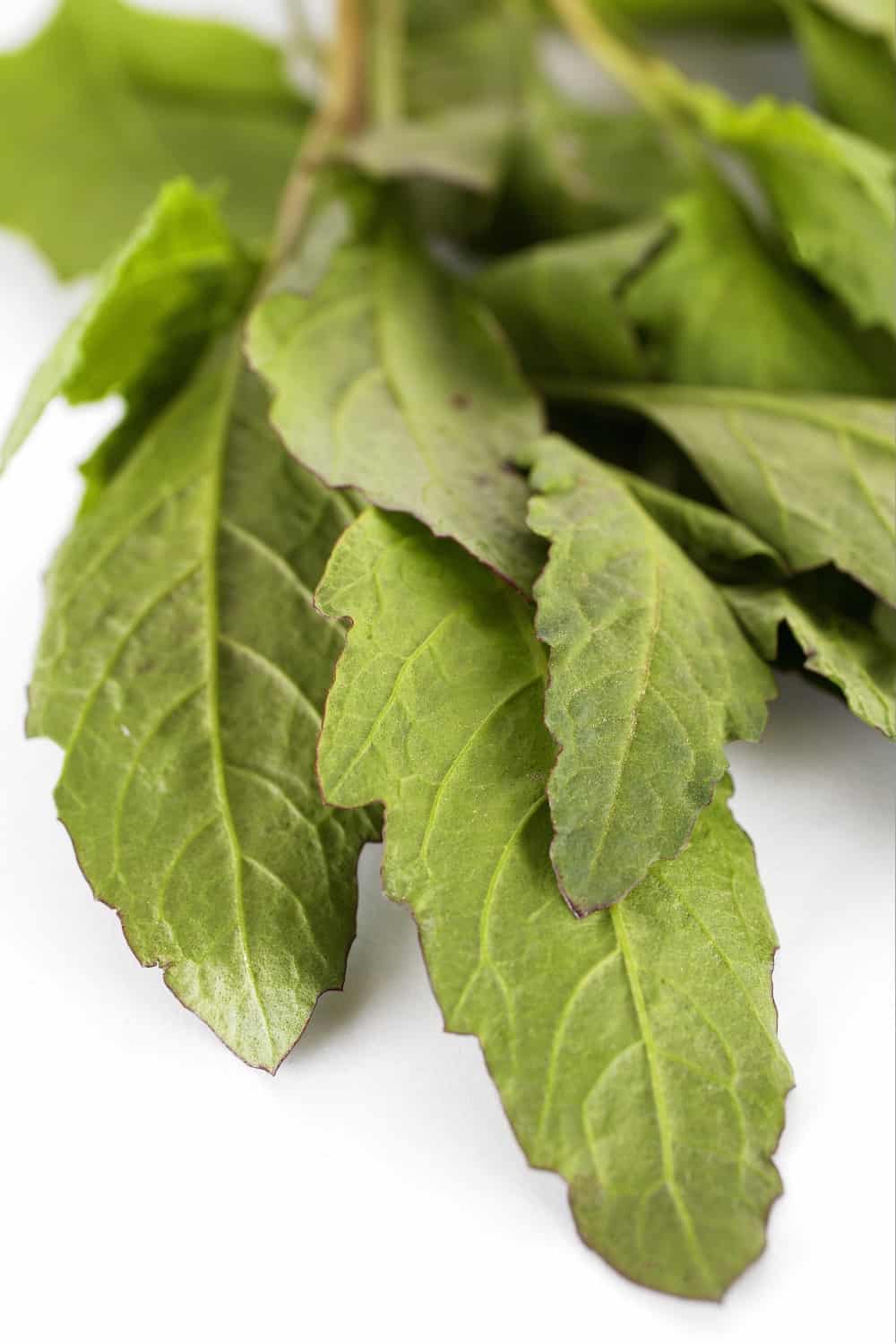
Epazote is an aromatic herb native to Central America. This herb has a strong flavor.
Similarities
• Availability: Both epazote and winter savory can be found in grocery stores, supermarkets, and online shopping websites.
• Notes: Both epazote and winter savory have a strong, minty note.
Differences
• Taste: Epazote has a strong, pungent taste, while winter savory has a strong, earthy, and bitter taste.
• Texture: Epazote has a crisp and crunchy texture, whereas winter savory has a fine, fluffy texture.
• Price: The average price of epazote is $10 per 1 oz, while 1 oz of winter savory costs around $8.
How to use epazote in cooking
Epazote is mostly used with stews, quesadillas, and with black beans. It is also used with cream sauces, scrambled eggs, and soups.
3. Thyme
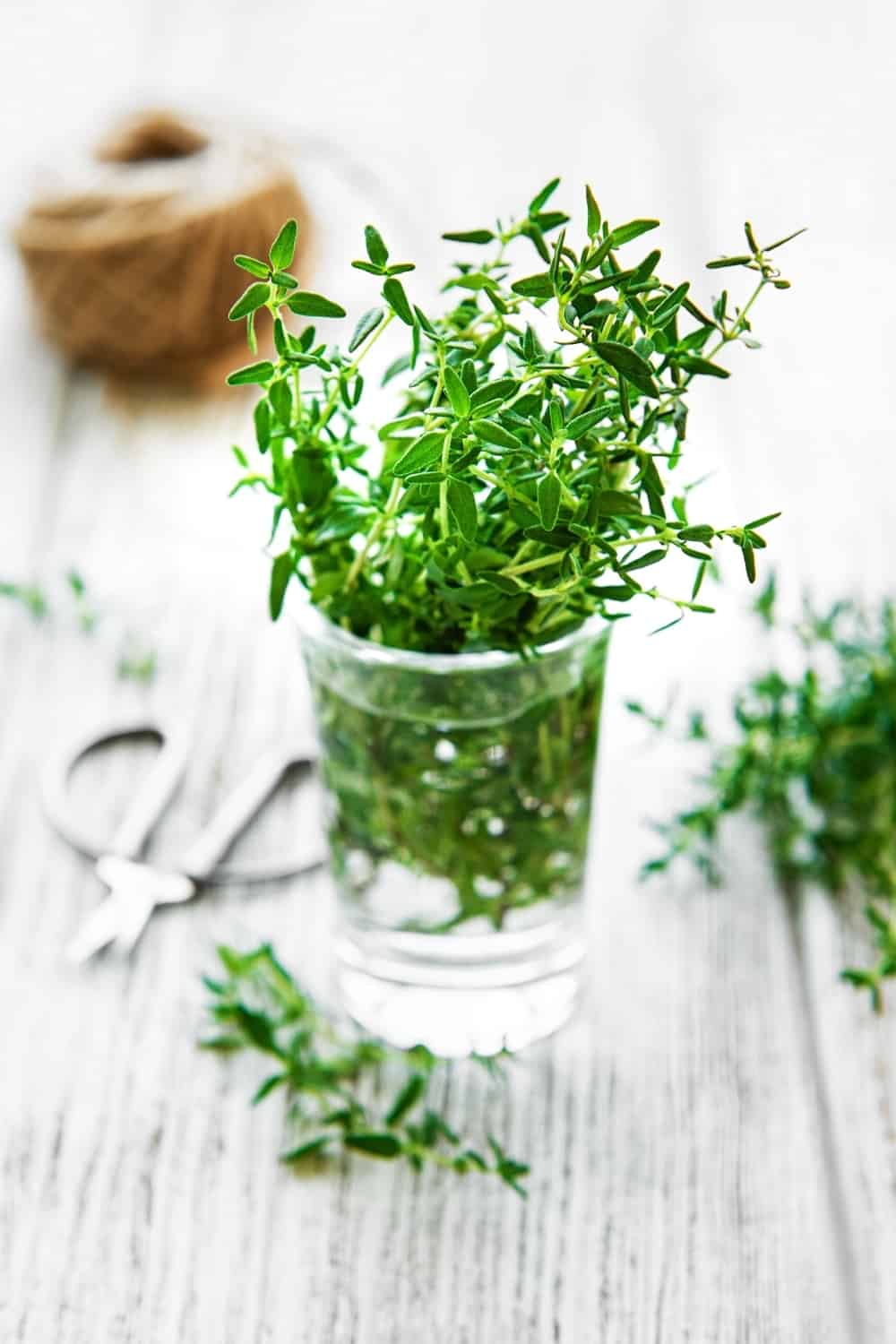
Similarities
• Notes: Both thyme and winter savory have minty notes.
• Taste: Thyme and winter savory share an earthy taste.
• Availability: Thyme and winter savory can be found in grocery stores, supermarkets, and online shopping websites.
Differences
• Texture: Thyme has a leafy, fibrous texture, whereas winter savory has a fine, fluffy texture.
• Price: 1 oz of thyme costs around $5, while 1 oz of winter savory is around $8.
How to use thyme in cooking
Thyme is popularly used with tomatoes, cheese, lentils, and eggs. It can be also used to season poultry or for recipes that require stuffing.
4. Sage
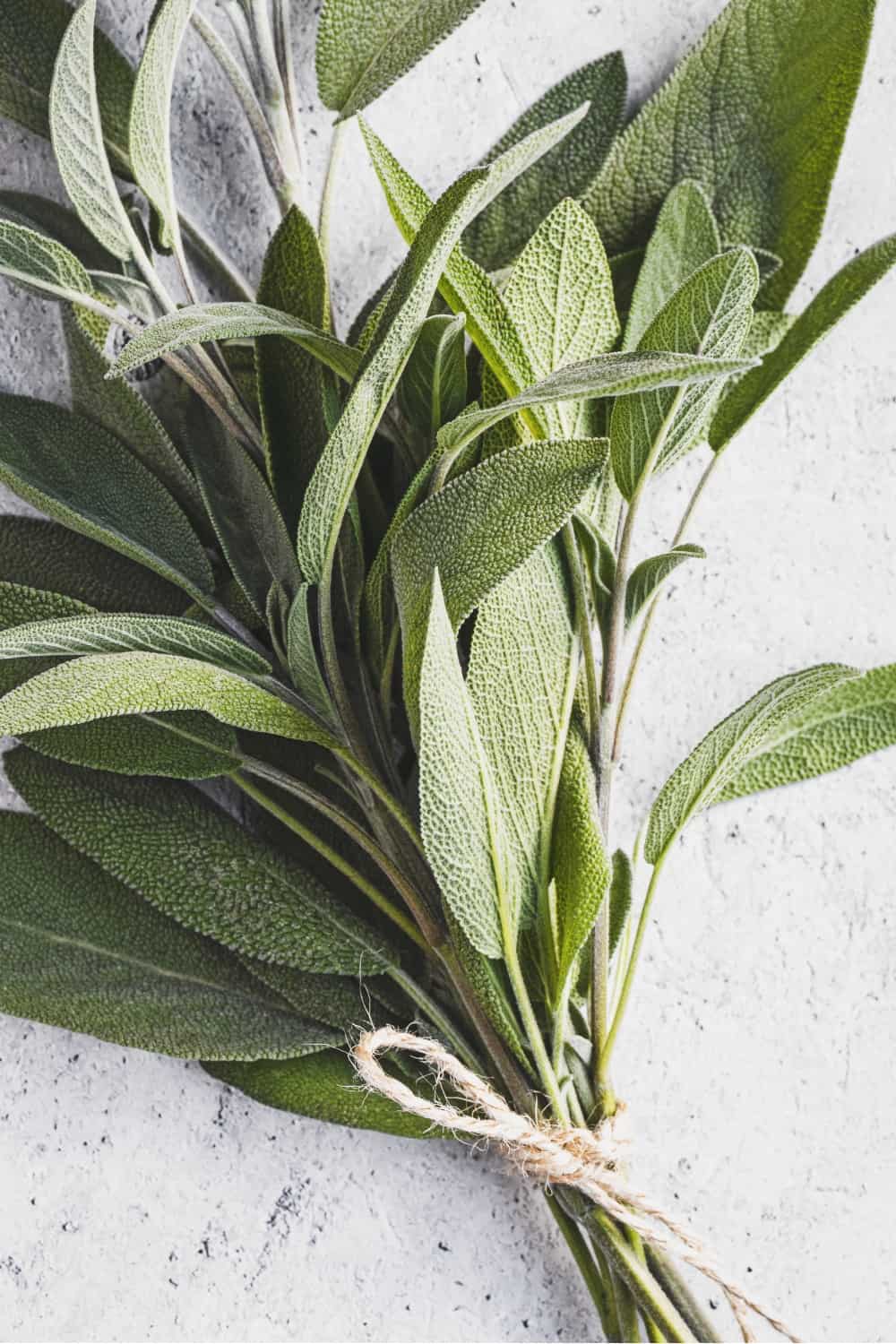
Similarities
• Notes: Both sage and winter savory have minty notes.
• Availability: Sage and winter savory can be found in grocery stores, supermarkets, and online shopping websites.
Differences
• Taste: Sage has a strong, musky taste, whereas winter savory has a strong, earthy, and bitter taste.
• Texture: Sage leaves have a soft and fuzzy texture, while winter savory has a fine, fluffy texture.
• Price: The average price of sage is $5 per 1 oz, while winter savory costs around $8 per 1 oz.
How to use sage in cooking
Sage is often used for seasoning sausages or poultry, and it also pairs well with sweet potatoes. It can also be used for stuffings and in soups.
5. Marjoram
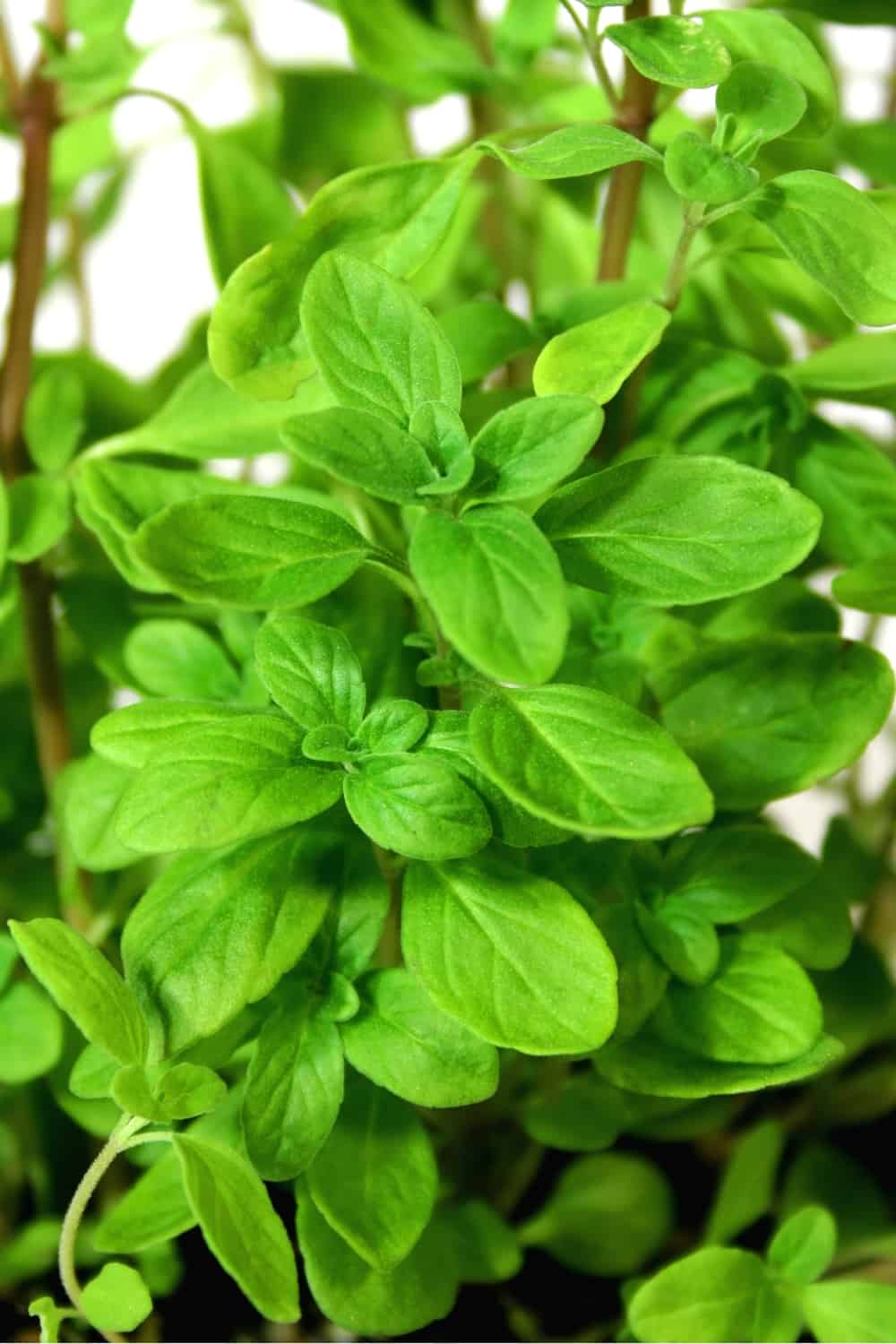
Similarities
• Taste: Marjoram and winter savory share an earthy taste.
• Notes: Marjoram is one of the notes found in winter savory.
• Price: Both marjoram and winter savory have an average price of $8 per 1 oz.
• Availability: Both marjoram and winter savory can be found in grocery stores, supermarkets, and online shopping websites.
Differences
• Texture: Marjoram has a fuzzy texture, while winter savory has a fine, fluffy texture.
How to use marjoram in cooking
Marjoram is popularly used to season red meats like beef and lamb. It can also be added to veggies, sausages, poultry, stuffings, and dishes with tomatoes.
6. Coriander
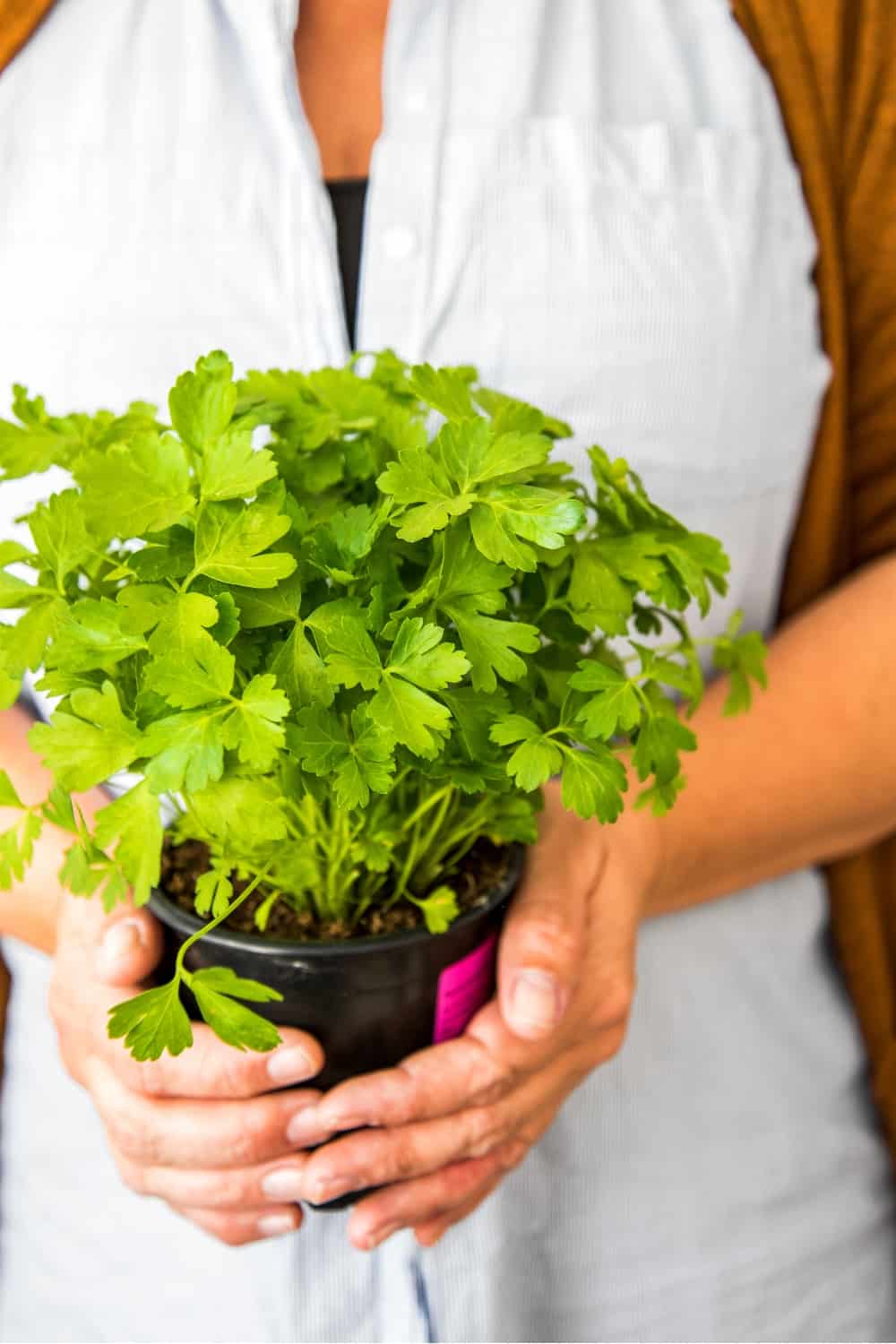
Also known as cilantro, coriander belongs to the family Apiaceae.
Similarities
• Notes: Coriander and winter savory share bitter notes.
• Availability: Both coriander and winter savory can be found in grocery stores, supermarkets, and online shopping websites.
• Price: Both coriander and winter savory have an average price of $8 per 1 oz.
Differences
• Taste: Coriander has a mildly sweet, citrusy taste, while winter savory has a strong, and earthy taste.
• Texture: Coriander has a crisp and tender texture, while winter savory has a fine, fluffy texture.
How to use coriander in cooking
Coriander pairs well with curries, sauces, shrimp, bacon, steak, lamb, soups, carrots, chicken, chickpeas, etc. Here’s how to dry cilantro aka coriander to enjoy it all year long.
7. Cumin
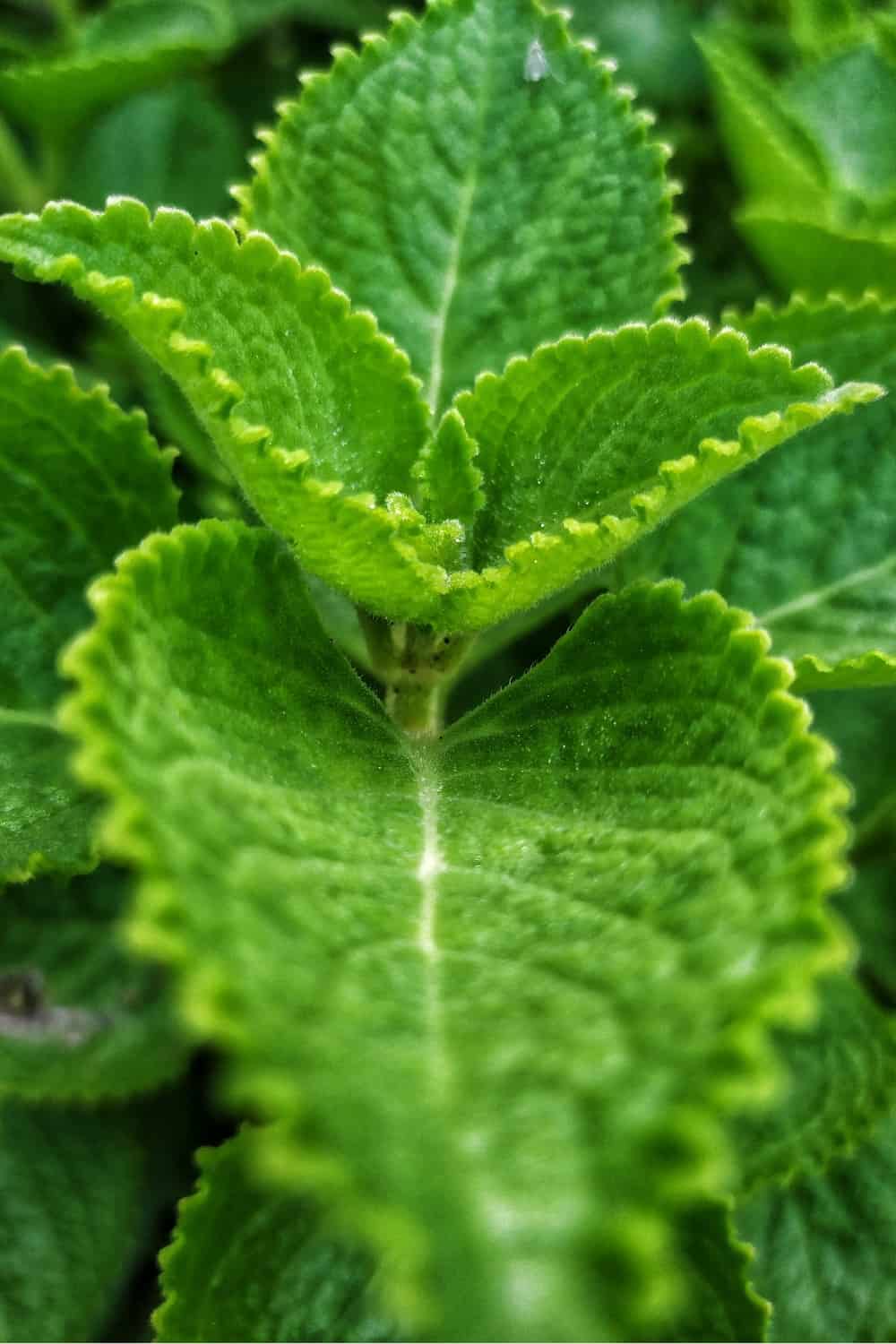
Cumin belongs to the parsley family, and it’s native to Africa, Asia, and Europe.
Similarities
• Notes: Both cumin and winter savory have earthy notes.
• Availability: Both cumin and winter savory can be found in grocery stores, supermarkets, and online shopping websites.
Differences
• Taste: Cumin has a nutty, citrusy, and savory taste, while winter savory has a strong and bitter taste.
• Texture: Ground cumin has a fine, coarse texture, whereas winter savory has a fine, fluffy texture.
• Price: The average price of cumin is $3 per 1 oz, while 1 oz of winter savory costs around $8.
How to use cumin in cooking
Cumin pairs well with root vegetables such as carrots and beets and it’s also great for stews, beef, and lamb.
See Also: 12 Best Substitutes For Poultry Seasoning + Homemade Recipe
What Is Your Favorite Summer/Winter Savory Substitute?
I usually use summer savory, so when I run out of it thyme and sage are my favorite alternatives. From time to time, I like to play with different flavors such as rosemary, basil, and oregano.
I’m also determined in encouraging others to try different savory substitutes instead of sticking to only one. As Coldplay says in one of their songs: But if you never try, you’ll never know. Feel free to apply this tip to any other sphere of life. 😄

